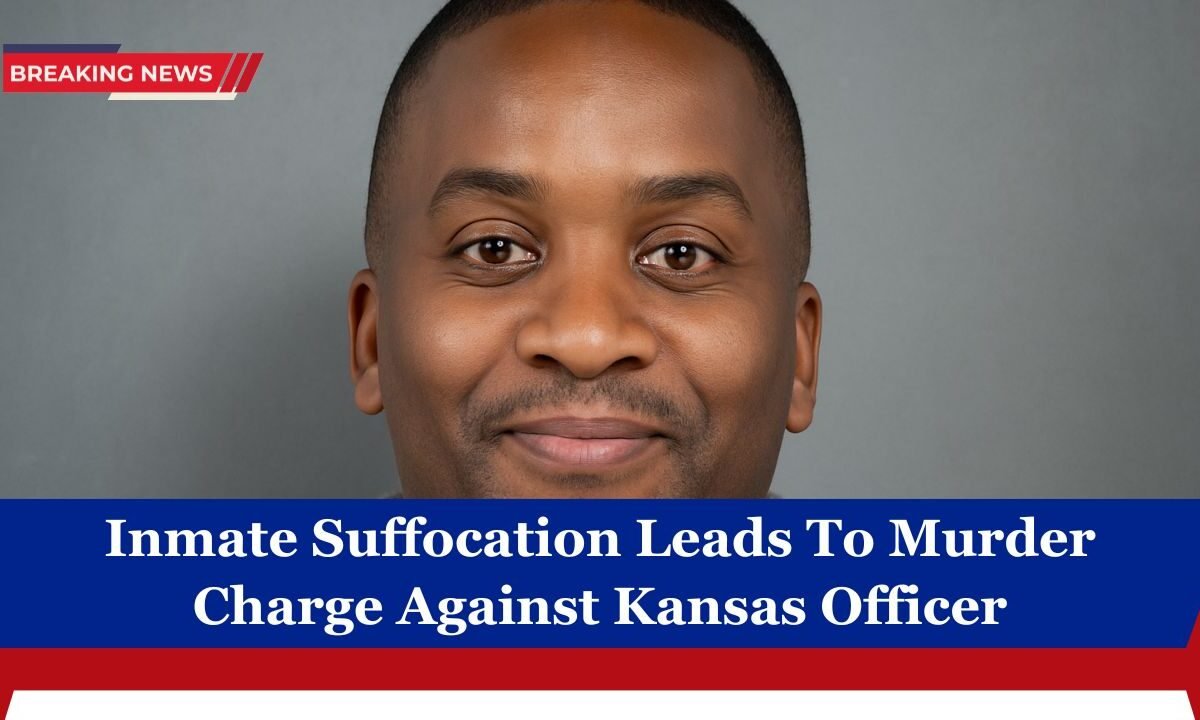A Kansas City jail deputy is facing serious charges after the suffocation death of an inmate earlier this summer.
The case has sparked outrage in the community and renewed debates about accountability within correctional facilities.
Deputy Richard Fatherley has been charged with second-degree murder and an alternative count of involuntary manslaughter in the in-custody death of 50-year-old Charles Adair, whose autopsy ruled the death a homicide caused by mechanical asphyxia.
Timeline of Events
- July 4: Charles Adair was booked into the Wyandotte County Detention Center after being arrested for failure to appear in court on misdemeanor traffic violations.
- July 5: Less than 24 hours later, Adair was found unresponsive in his cell after a reported altercation with jail staff.
- Jail personnel had removed his handcuffs and left the cell; seven minutes later, Adair was discovered unconscious.
- Despite medical intervention, he was pronounced dead roughly an hour after being found.
Autopsy Findings
The medical examiner concluded that Adair died from complications of mechanical asphyxia, a condition often linked to suffocation, smothering, or positional restraint.
Additional injuries included:
- Multiple rib fractures
- Sternal fracture
- Muscle hemorrhages on the back and shoulders
- Internal bleeding
The report also noted pre-existing health conditions, such as cardiovascular disease and cirrhosis, which may have contributed to his vulnerability but were not the primary cause of death.
Charges Against the Officer
Deputy Richard Fatherley now faces two possible charges:
- Second-degree murder: This charge carries a potential sentence of up to 41 years in prison.
- Involuntary manslaughter: If convicted on this lesser charge, Fatherley could face up to 11 years behind bars.
Instead of being arrested and booked, Fatherley was issued a summons to appear in court. Prosecutors defended this decision by stating that he was not considered a flight risk and had cooperated with investigators.
He is currently on unpaid administrative leave pending trial.
Family and Community Response
Adair’s family members expressed heartbreak and frustration over the circumstances of his death. They have called for:
- Transparency, including the release of video footage from the jail.
- Accountability, questioning why the deputy was not taken into custody like other defendants facing murder charges.
- Justice, insisting that the treatment of Adair highlights systemic issues in custodial care.
Local advocacy groups have rallied around the family, calling for reforms in detention practices and greater oversight of correctional staff.
Legal and Procedural Concerns
The handling of this case raises several important questions:
- Why was the deputy issued a summons instead of being jailed after being charged with murder?
- What protocols were in place regarding inmate transfers, and were they followed properly?
- How will the presence of Adair’s health conditions affect the trial and the defense strategy?
The upcoming court proceedings in November are expected to address these issues in detail.
Case Information at a Glance
| Detail | Information |
|---|---|
| Victim | Charles Adair, 50 years old |
| Accused | Deputy Richard Fatherley |
| Location | Wyandotte County Detention Center, Kansas City |
| Date of Incident | July 5, 2025 |
| Cause of Death | Complications of mechanical asphyxia |
| Manner of Death | Homicide |
| Additional Injuries | Rib fractures, sternal fracture, internal bleeding |
| Charges | Second-degree murder, involuntary manslaughter |
| Court Appearance | Scheduled for November |
| Potential Penalty | Up to 52.5 years in prison |
Broader Implications
This case underscores broader concerns surrounding:
- Inmate safety in correctional facilities
- Accountability of officers and correctional staff
- The balance between law enforcement protection and justice for victims
It may also influence future policies on how correctional officers are trained to manage inmates with health vulnerabilities and those requiring medical care.
The tragic death of Charles Adair has left a community in mourning and raised pressing questions about the use of force and accountability in correctional settings.
The decision to charge Deputy Richard Fatherley with murder underscores the seriousness of the incident, though the unusual decision to release him on summons has added to public concern.
As the case proceeds through the courts, it will likely become a pivotal moment in Kansas’s handling of in-custody deaths, shining a spotlight on justice, transparency, and reform within the state’s correctional system.




